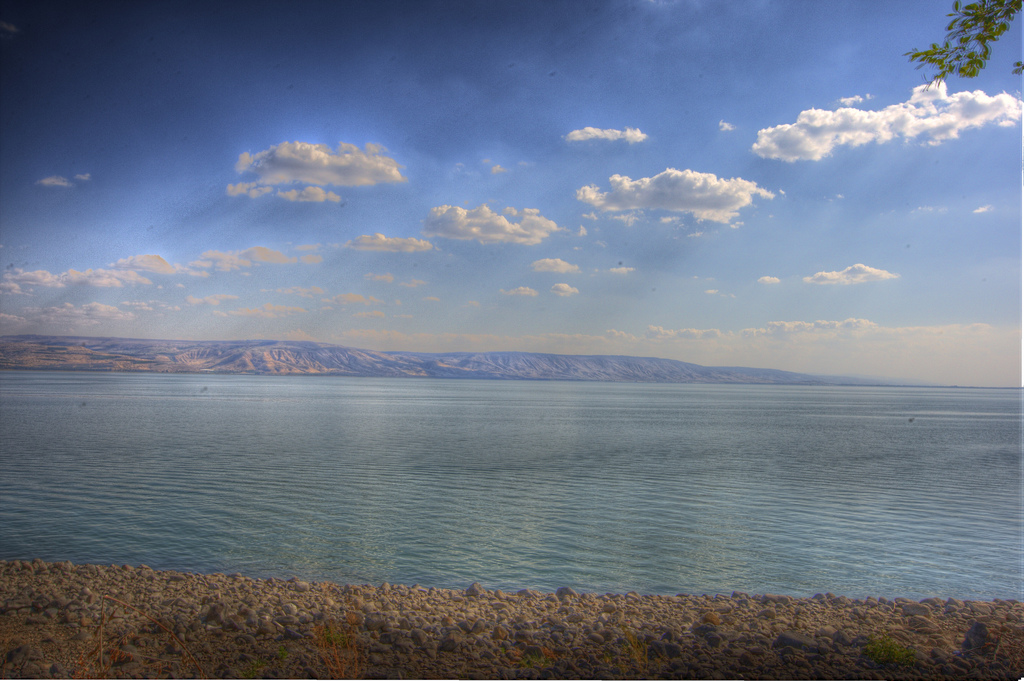0 Comments
From John 14 with some thoughts:
“There are many rooms in my Father’s House. If there were not, should I have told you that I am going to prepare a place for you? It is true that I am going away to prepare a place for you, but it is just as true that I am coming again to welcome you into my own home, so that you may be where I am.” These are verses that you’ll often hear spoken at a funeral, in a typically lofty funereal tone: “In my Father’s house are many rooms,” or, if it’s a King James funeral (they up the ante a little), “In my Father’s house are many mansions.” My sense, sitting in those pews, would be that these words have a “later” meaning for me, rather than right “now,” that only the one in the casket is enjoying the fullness of what Jesus is saying. But, more and more, I’m thinking it’s both, just as, on this night when Jesus is speaking, there’s both “now” – meaning that Friday through Sunday – and also “later” – when He will one day return – probably happening in His mind. Consider two alternate readings, taking into account the potential “now” and “later” meanings of Jesus’ words: NOW - “It is true that I am going away tomorrow to the Cross and the grave to prepare a place for you by destroying the law of Sin and death, but it is just as true that I am coming again – do NOT make plans this Sunday! - to welcome you into my own home and, by the way, into Me and I into you, so that you may be where I am and I always with you.” LATER - “It is true that I am going away for a space of what you people call “time” to prepare a place for you in the eternal never-ending glories of the Kingdom of Heaven, the New Earth, the New Jerusalem, but it is just as true that I am coming again as the Bridegroom, with the sky rolled back like a scroll to welcome you, my Bride, into my own home where I am Light and Life, so that you may be where I am and that the wedding feast of the Lamb might never end.” My friends, you are just as much a citizen of Heaven right now as you will be on the day you die. Your room – or mansion! – is already yours; live that way! From John 13, with notes -
Jesus was clearly in anguish of soul, and he added solemnly, “I tell you plainly, one of you is going to betray me.” At this the disciples stared at each other, completely mystified as to whom he could mean. And it happened that one of them who Jesus loved, was sitting very close to him. And, with those words, we arrive at the wonderful conundrum of John’s famous descriptions of “the disciple whom Jesus loved,” this faceless figure that is, most of the time, thought to be John himself. Whoever he is, he’s getting it right on two accounts: 1) his awareness of Jesus’ love, and 2) his proximity to Jesus. Especially set against Jesus’ statement of Judas’ upcoming betrayal – the very definition of stepping away from Jesus – consider the language of how close the beloved disciple was hanging to Him: “There was reclining on Jesus’ lap one of His disciples, whom Jesus loved.” Picture that. such closeness that this disciple would know the scent of Jesus’ breath. Such non-separation that the very idea of betrayal would’ve seemed foreign, even confusing. My friends, without a constant proximity, our love for Jesus becomes mere approximation, a series of best guesses. But it’s the one who lounges TONIGHT on Jesus’ lap who TOMORROW will be the only disciple who stands at the Cross and sees it all. Nearness is better than dearness; nearness to Jesus is life. So Simon Peter nodded to this man and said, “Tell us who he means.” He simply leaned forward on Jesus’ shoulder, and asked, “Lord, who is it?” To make an inquiry, the disciple-whom-Jesus-loved now only has to lean his head over a few inches. He hardly has to move a muscle to be in prayer. Again, may this be us! May our normalcy be so near to Jesus that our prayers and intercessions are just an inclining of the head, a subtle shift in the spirit. After all, when your head has already been resting upon a person, it’s a different sort of conversation, isn’t it? I think those are Jesus’ favorites. "Now if Christ does live within you his presence means that your sinful nature is dead, but your spirit becomes alive because of the righteousness he brings with him." Romans 8:10 To state it more explicitly: The righteousness of Jesus murders the sinful nature and breathes life - HOOOO - into the human spirit. Have you heard the big impressive theological word, "sanctification," before? Simply put, it means "becoming holy" or "being made holy." Yet it's in how we approach that process - actually being sanctified - that you'll find some of the greatest margin for error in all of Christianity. For many, it becomes a religious slog perfectly akin to the way the Pharisees were trying to live out the commands and rules of the Old Covenant right in front of Jesus Himself. That's not supposed to be us! Instead, with perfect righteousness already living inside you - His name is Jesus, pleased to meet you! - it's your Abiding in Him, your moment-to-moment experience of His life that can't fail to win your obedience and, with it, your sanctification unto holiness. My friends, Jesus can't fail to be holy. Brothers and Sisters, let's not fail to enjoy and Abide in Him today! From John 13 with some thoughts:
Jesus, with the full knowledge that the Father had put everything into his hands and that he had come from God and was going to God, rose from the supper-table, took off his outer clothes, picked up a towel and fastened it round his waist. Which was strange and inexplicable enough. I imagine the disciples watching Him do these things in silence, wondering to themselves, exchanging side-of-the-eye glances with each other. And then comes this: Then he poured water into the basin and began to wash the disciples’ feet and to dry them with the towel around his waist... It’s the silence of His actions that always gets me. The slow rise from the table, the taking-off and the hanging-up of His cloak and tunic, His eyes searching the room and then, spotting a towel, picking it up, wrapping it around His waist and tying it off at the back. By the door, he takes up a large clay basin, fills it up with water and walks over toward John. He gets down on the ground before him. Unstraps John’s dusty sandals. Then, in silence, lifting John’s foot with a tender hold on the back of his heel and Achilles, he starts to scrub and soak the crusted dirt and grime. Even the servants of the rich never gave such a thorough washing to the feet of the rulers; Jesus spends His time on every inch, between every toe. And when He’s finished with John, it’s on to James next… Can you imagine looking down at the top of Jesus’ head, His hair a bit unkempt, as He’s bending over to carefully, lovingly wash your dirty feet? In that moment, all the disciples, utterly shocked and ashamed, must have so wondered what could be the motivation for such inexplicable, disgustingly servile behavior from their Master. Well, we are told His motivation: “the full knowledge that the Father had put everything into his hands and that he had come from God and was going to God…” In essence, the mid-section of Colossians 1: “[That] Christ is the visible expression of the invisible God. He existed before creation began, for it was through him that every thing was made, whether spiritual or material, seen or unseen. Through him, and for him, also, were created power and dominion, ownership and authority. In fact, every single thing was created through, and for him. He is both the first principle and the upholding principle of the whole scheme of creation.” And it is for that reason, with all things placed in His hands by the Father, that He now stoops to wash the nasty feet of His friends. God had once chosen to walk with Adam in his perfection. Now God has chosen to wash the feet upon which walk the imperfect sons of Adam. This is the most intimate moment in the Scriptures; this is the precise heart of the God who made it all. And us all.
* * * * * From John 12 - "Jesus told them, 'The time has come for the Son of Man to be glorified. I tell you truly that unless a grain of wheat falls into the earth and dies, it remains a single grain of wheat; but if it does, it brings a good harvest. The man who loves his own life will destroy it, and the man who hates his life in this world will preserve it for eternal life. If a man wants to enter my service, he must follow my way; and where I am, my servant will also be. And my Father will honor every man who enters my service.'"
The entire blueprint for our life-in-Jesus is given in this paragraph. Let’s rephrase each part, just to make sure we understand His statements, and then tie it back together so that it’s ours, so we possess it. “The time has come for the Son of Man to be glorified” – The glory of Jesus is His death and, along with it, His Resurrection and His Ascension. So, immediately, we’re in an inverted economy because, in the world, only living out your own life is what really matters. “I tell you truly that unless a grain of wheat falls into the earth and dies, it remains a single grain of wheat; but if it does, it brings a good harvest” – Again an inversion: Death results in more life. And, with that, He also gives an important part of the lifestyle of what He’s about to call the Way: “a good harvest”; the absolute importance of the multiplicative effect of our self-death. “The man who loves his own life will destroy it, and the man who hates his life in the world will preserve it for eternal life” – The barrier-to-entry for following Jesus is death – death of your old life, death of your self-life, death of your self-concern, self-focus, self righteousness, your whole “Self.” If you have missed that to this point in trying to follow after Jesus, miss it no longer. “If a man wants to enter my service, he must follow my way” – What is the “way” of Jesus? JESUS. His actual life, with its mannerisms, affections, delights, struggles, loves, hates and complete abandonment to the Will of the Father. It is walking precisely as He walked during every day of His life before arriving at the Cross of Calvary. But how can we access that? How can we reach out and touch and know a Way that rests on the other side of the Cross? By going right through His death on the Cross. The barrier-to-entry for our salvation is Jesus’ death; the Cross is the doorway through which we walk and where we trade our life for His life, His Way. (Does this all sound a bit morbid and grim? Well, keep reading for the payout!) “And where I am, my servant will also be” – And also so beautifully true: “Where my servant is, there I am.” We don’t deal with an external rule that judges and condemns our efforts; we walk with the Indwelling Way who recreates His life in us. And we even have a cheering section while we Abide in Him… “And my Father will honor every man who enters my service” – It’s a simple thing to walk in the good pleasure of the Father when His perfect Son has taken up residence in us. Seeing us, the Father now sees Jesus. And the path to all this goodness and glory? His death, our death. And the reward in all this? His Life, eternal Life. All glory to you, Jesus!
The text for John 11:45-12:11 in the Phillips translation:
After this many of the Jews who had accompanied Mary and observed what Jesus did, believed in him. But some of them went off to the Pharisees and told them what Jesus had done. Consequently, the Pharisees and chief priests summoned the council and said, “What can we do? This man obviously shows many remarkable signs. If we let him go on doing this sort of thing we shall have everybody believing in him. Then we shall have the Romans coming and that will be the end of our holy place and our very existence as a nation.” But one of them, Caiaphas, who was High Priest that year, addressed the meeting: “You plainly don’t understand what is involved here. You do not realize that it would be a good thing for us if one man should die for the sake of the people — instead of the whole nation being destroyed.” (He did not make this remark on his own initiative but, since he was High Priest that year, he was in fact inspired to say that Jesus was going to die for the nation’s sake — and in fact not for that nation only, but to bring together into one family all the children of God scattered throughout the world.) From that day then, they planned to kill him. As a consequence Jesus made no further public appearance among the Jews but went away to the countryside on the edge of the desert, and stayed with his disciples in a town called Ephraim. The Jewish Passover was approaching and many people went up from the country to Jerusalem before the actual Passover, to go through a ceremonial cleansing. They were looking for Jesus there and kept saying to one another as they stood in the Temple, “What do you think? Surely he won’t come to the festival?” It should be understood that the chief priests and the Pharisees had issued an order that anyone who knew of Jesus’ whereabouts should tell them, so they could arrest him. Six days before the Passover, Jesus came to Bethany, the village of Lazarus whom he had raised from the dead. They gave a supper for him there, and Martha waited on the party while Lazarus took his place at table with Jesus. Then Mary took a whole pound of very expensive perfume and anointed Jesus’ feet and then wiped them with her hair. The entire house was filled with the fragrance of the perfume. But one of his disciples, Judas Iscariot (the man who was going to betray Jesus), burst out, “Why on earth wasn’t this perfume sold? It’s worth thirty pounds, which could have been given to the poor!” He said this, not because he cared about the poor, but because he was dishonest, and when he was in charge of the purse used to help himself to the contents. But Jesus replied to this outburst, “Let her alone, let her keep this for the day of my burial. You have the poor with you always — you will not always have me!” The large crowd of Jews discovered that he was there and came to the scene—not only because of Jesus but to catch sight of Lazarus, the man whom he had raised from the dead. Then the chief priests planned to kill Lazarus as well, because he was the reason for many of the Jews’ going away and putting their faith in Jesus. |
Themes
All
Archives
July 2024
|



 RSS Feed
RSS Feed
